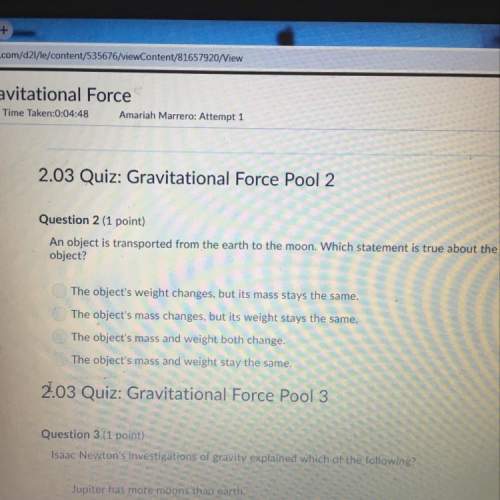
Chemistry, 29.01.2021 20:30 kleathers97
bicycle has a mass of 9.1 kg. You accelerate at a rate of 1.79 m/s^2. Calcium the force that is accelerating your bicycle.

Answers: 2


Other questions on the subject: Chemistry

Chemistry, 21.06.2019 20:30, moneykey
Hannah is writing a report on how albedo affects the global climate. she’s proofreading her passage for any factual errors. which sentence must hannah correct before submitting her report? earth receives energy from the sun. this energy drives many of the processes on earth, including its climate. some part of this energy is reflected by earth’s surface. we use the term albedo to describe the reflected energy. albedo of an object is the ratio of the reflected radiation to the total radiation reaching the object. a value of 0 means no energy is absorbed by the object, whereas a value of 1 means that all of the energy is absorbed. in this way, the albedo of an object can influence earth’s atmospheric temperature.
Answers: 1


Chemistry, 22.06.2019 02:00, officialgraciela67
What is the volume occupied by 10.0 dm3 of gas at standard pressure after it has been compressedat constant temputure to 500.0 kpa?
Answers: 1

Chemistry, 22.06.2019 08:30, breannaking9734
Which part of earth’s surface receives the most direct rays from the sun? a) equator b) ocean c) poles d) mountains
Answers: 2
You know the right answer?
bicycle has a mass of 9.1 kg. You accelerate at a rate of 1.79 m/s^2. Calcium the force that is acce...
Questions in other subjects:




History, 06.11.2019 08:31



Mathematics, 06.11.2019 08:31






